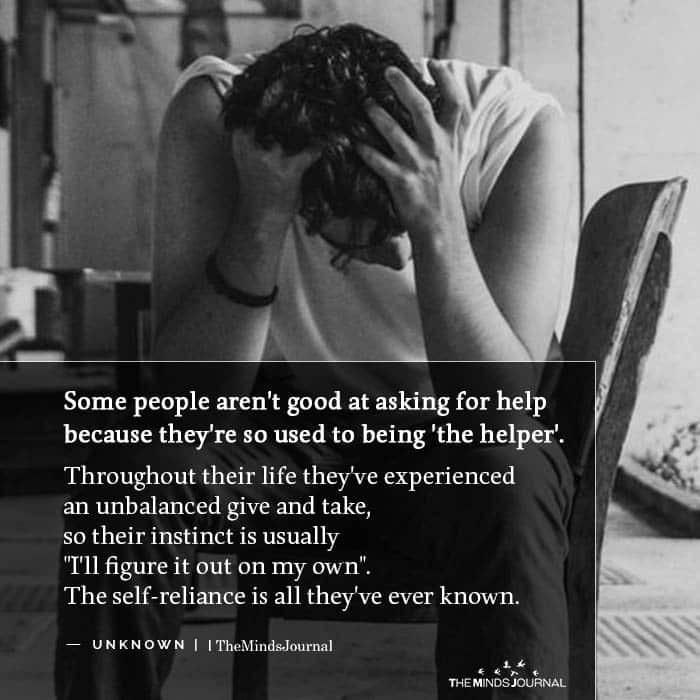Do you know the SMART way to ask for help?
An interview with Wayne Baker
Do you struggle when it comes to asking for help at work? Perhaps you’re worried about bothering your very busy colleagues, or maybe you fear being seen as incompetent, weak, or lazy.
But did you know that studies have found that most people want to help others, and when you ask for help, make a reasonable and intelligent request, you’re likely to be perceived as being more competent? So,

What’s The Best Way To Ask For Help At Work?
“Studies have found that we routinely underestimate others’ willingness and ability to help,” explained Professor Wayne Baker from the University of Michigan’s Ross School of Business and author of the new book All You Have To Do Is Ask when I interviewed him recently, “and if by chance, someone has to refuse your request for help, don’t worry: They’ll be even more likely to help next time.”
Unfortunately, 85 percent of us say we would rather depend on ourselves than on others, seeing it as a mark of grit, ambition, and productivity. In fact, many of us tend to be overly generous givers, who freely and generously give to others at the cost of our own productivity and performance.
The reality is, however, that if you’re continually giving and helping others all the time, without asking for help from others, you don’t get the inflow of resources you need to stay on top of your work. You’re likely to be depleting your energy, putting yourself at risk of burnout, and losing valuable opportunities to learn and grow. Instead, Wayne recommends you try to be a “giver-requester” who generously helps others and is able to ask for help when the need arises.
Read 4 Common Fears About Asking For Help And How To Move Past Them
The key, Wayne suggests, is learning to make your requests SMART by being:
- Specific, not general. For example, if you want information, be specific about what information you need.
- Meaningful. Consider why you are making the request, why it is important, and why it is meaningful. Often, it’s the “why” that really motivates people to respond.
- Action-orientated. A goal is not a request. It’s a destination. A request is an action that moves you towards that destination.
- Realistic and strategically sound. If it’s too big a stretch, chances are it may not happen.
- Timed. You need to have a deadline for your request.
To help you improve your ability to make SMART requests, Wayne recommends:
Assessing your style
Take this quick free survey and become more aware of the things that you ask for, and the things that you don’t. Then start small and safe, and use the SMART criteria to practice asking for more from others, and giving whenever you can. Remember that asking is a privilege that you earn by also being generous.
Read How to Ask for Help With Depression: 8 Ways To Reach Out & Start Recovering
Getting clear on your needs
Use sentence completions where you fill in the blanks. For example, “I’m currently working on X, and I could use help to Y,” or, “One of my urgent tasks is to X, and I need to Y,” or, “My biggest hope is X, and I need Y.” By filling in these blanks, you can gain a sense of what you’re working on, what you’re trying to do, and something that you could ask for.
Read 3 Tips To Create Conversations That Are Worth Having In Your Workplace
Having helping standups
Borrow from this ritual used in IT and software development firms. Each morning, have your team members gather in a circle and then quickly go around and have everyone answer these three questions: What did I work on yesterday? What am I working on today? What help do I need? Because you know that everyone is going to be asked these questions, it can make it a lot easier and safer to give and ask for help.
Playing helping mini-games
Incentivize people to tap into the resources that exist in their network in order to solve complex business problems. For example, one company Wayne works with used a mini-game to reward their people for increasing the company’s social media activity.
Goals were set, rewards were offered, but as many of them didn’t know how to share posts or tweets, the game prompted them to ask for help from each other. As a result, not only did their social posting grow, but their ability to ask each other for help also improved considerably.
Read 7 Conversation Hacks That Will Help You Hit It Off With Anyone
What assistance do you need right now, and who can you ask who might be able to help?
(You can hear the full interview on the Making Positive Psychology Work podcast here.)
Written by: Michelle McQuaid Originally appeared on: Psychology Today Republished with permission










Leave a Reply